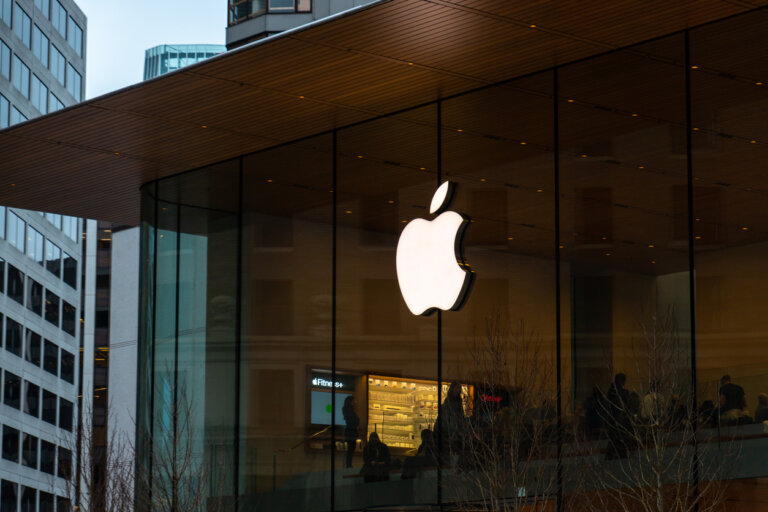The ongoing antitrust dispute between technology giant Apple, Inc. (“Apple”) and video game developer Epic Games, Inc. (“Epic Games”), captioned in the United States Circuit Court of Appeals for the Ninth Circuit as Epic Games, Inc. v. Apple, Inc., No. 21-16506 (9th Cir.), has taken another turn, as both companies have requested a reconsideration of a federal appellate court ruling on May 3, 2023, which was denied, and there may be an attempt to raise the issues to the U.S. Supreme Court.
This high-profile dispute centers around Apple’s App Store payment practices, specifically the requirement for software developers to pay up to a 30 percent commission on in-app purchases made by consumers. Let’s review the recent developments, including the appeals filed by Apple and Epic Games, the court’s ruling, and the potential implications for the app store market.
The legal battle between Epic Games and Apple began in 2020 when Epic began offering Fortnite players a lower-priced option for purchasing virtual currency outside of Apple’s in-app payment system. Apple responded by removing Fortnite from the iOS App Store, leading to Epic Games’ lawsuit.
Apple and Epic Games Seek Reconsideration
In June 2023, Apple and Epic Games submitted separate appeals seeking a review of the ruling by a three-judge panel of the Ninth Circuit. The companies proposed either rehearing the case or convening an 11-judge panel (“en banc”) to reassess the dispute. The Ninth Circuit has denied a rehearing en banc.
Apple challenges a nationwide injunction, arguing that its conduct is procompetitive and does not violate antitrust or unfair competition laws. On the other hand, Epic Games argues that its claims against Apple align with the core purpose of U.S. antitrust law, emphasizing the need to foster competition.
The Appellate Court’s Decision and Implications
A three-judge panel of the Ninth Circuit largely sided with Apple. The Ninth Circuit upheld the lower court’s ruling, stating that Apple is not a monopolist in app distribution and did not violate antitrust laws by mandating the use of its proprietary in-app payment systems.
The decision emphasized Apple’s security and privacy rationales, which differentiate it from other mobile-operating-system providers, fostering competition between iOS and Android. However, under the California Unfair Competition Laws, the Ninth Circuit in essence affirmed the trial court’s holding that Apple’s anti-steering provisions enforced on Epic Games unlawfully decreased the information that Epic Games could provide to consumers about alternative payment options, enabling Apple to reap supracompetitive profits and decrease innovation. The ruling has significant implications, particularly amid growing scrutiny of app store operators worldwide.The court’s decision comes at a time when policymakers and regulators globally are scrutinizing app store providers and their practices.
Over the past several years, app developers have accused Apple and Google of excessive fees, restrictive policies, and alleged bullying of dissenting developers (Epic Games is involved in a separate lawsuit against Google over similar issues). This ruling could affect future attempts to regulate app stores and embolden critics of the current practices employed by these operators.
Whether This Issue Will Be Raised to the U.S. Supreme Court
Whether the U.S. Supreme Court will hear this decision remains to be seen. The Supreme Court receives numerous petitions each year to hear matters, but the Supreme Court only grants a fraction of the petitions. The Ninth Circuit’s ruling stands for now: Apple prevailed on the antitrust claims but must remove restrictions on informing users about alternative payment options to comply with the California Unfair Competition Laws.
Analysis
The Ninth Circuit’s ruling may be interpreted to favor Apple on the antitrust claims, reinforcing the company’s position that it is a non-monopolistic app store operator. However, the decision does acknowledge violations of the California Unfair Competition Laws, shedding light on the need for transparency on alternative payment options.
The industry’s focus on app store regulations is unlikely to wane. Developers, advocacy groups, and lawmakers are demanding reforms to ensure fair competition, reasonable fees, and greater consumer choice within the app ecosystem. Despite favoring Apple on some fronts, the ruling highlights the importance of balancing app store operators’ interests and promoting a competitive environment.
For now, app store operators have significant control over developers, consumer access, and the overall app economy. Finding the right balance between market control and fostering innovation will continue to be challenging as the industry evolves.
The Takeaway
The ongoing battle between Apple and Epic Games over antitrust allegations has reached a critical juncture. The fundamental issues surrounding payment practices and competition within the app store market could be raised to the Supreme Court. As the legal proceedings continue, the outcome of this high-stakes battle will have far-reaching implications, shaping the future landscape of the app store market. Our Firm will continue monitoring developments in this matter. The best way to seek advice about cutting-edge issues concerning the intersection between antitrust laws and digital marketplaces is to consult an experienced antitrust attorney.

